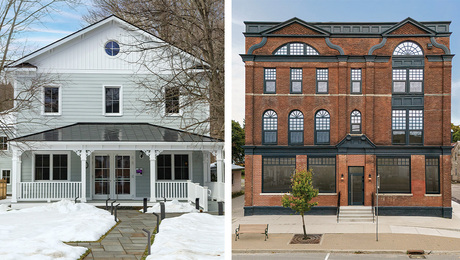I live in Michigan. For several weeks we have had record high temps with high humidity as well (dew point). I have my air conditioning set at @ 76. Lately my first floor windows are covered – and I mean covered – with water at night. So much so you cannot see out the window. It is exclusive to the outside of the window. My furnance and central air unit(s) are @18 years old. The second story bedroom windows remain dry and clear. I cannot remember a summer where this happened – the operative word there is ‘remember’. Anyway is there something wrong with my air – my windows – my temp setting? Any advice would be welcome.
Thanks, Mike



















Replies
Mike
There must be something going on in Michigan. There is a thread here on Condensation (I'll provide the link if you can't readily find it) on/around............can lights in a great room with open to the second floor ceiling (I guess-not a cathedral I'm assuming)..............and it's located in central Michigan.
More to the point of windows. My neighbor has North Facing original single pane glass on his 1870 house. Not every morning but on Tuesday a.m., I noticed what you are seeing. The air was thick with humidity, very high (70's) dew pt.. His air was on for sure-they like to hang meat in there. It would be the reverse of what you (he) may find in the winter with the cold out, the moisture appearing on the inside of the glass.
Doesn't help you I'm sure, but what you are seeing might help answer the question in the other thread.
Wow... condensation questions everywhere!
And as always.... you need to either keep the warm, moist air away from the cool condensing surface, reduce the RH of the warm, moist air, or reduce the temperature of the cool surface.
In this case, you could easily do one of the three. You could turn off the A/C, and/or ensure that the registers are not blowing cold air on the glass. The cold that you are paying for is transmitting from the inside of the house to the outside surface of the glass, where the moisture in the warm outdoor air is condensing on it. Reduce the glass temperature enough and it stops.
Another way to reduce the temp of the glass is to get better glass. A triple-pane, low-U-factor glass would perform much better than what you probably have. The glass you have may have lost its seal and some of its insulating value, too. That's harder to determine but can be looked at with infrared, or with other means of measuring the surface temperature of the glass.
There's not much you can do about outdoor temp and RH.